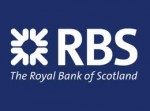 The one billion pound sale of RBS’s Williams & Glyn branches could gather speed on Monday as Andrew Higginson – the man leading a takeover attempt – holds meetings with a series of investors backing a bid for the 316 branches, says The Telegraph. The paper reports that the 17-member investor consortium includes Schroders, F&C, Henderson and Invesco.
The one billion pound sale of RBS’s Williams & Glyn branches could gather speed on Monday as Andrew Higginson – the man leading a takeover attempt – holds meetings with a series of investors backing a bid for the 316 branches, says The Telegraph. The paper reports that the 17-member investor consortium includes Schroders, F&C, Henderson and Invesco.
The Guardian writes that Tesco has launched its “price promise” to compare prices at tills with those at Asda, Sainsbury’s and Morrisons after suffering its first fall in profits in 20 years. The supermarket will then issues coupons to customers if their shopping would have been cheaper at their competitors’.
Manchester United could be close to the most valuable sponsorship deal in sporting history, according to The Times. The paper says that the football club could clinch a deal with US sporting goods giant Nike in the coming months and the two parties are to start talks on merchandising and sponsorship “imminently”.
The Parliamentary Commission for Banking has accused Chancellor George Osborne of rejecting suggestions to strengthen the industry, saying that he has bowed into pressure from banks after watering down plans to limit riskier forms of lending, reports The Times.
The Telegraph writes that Virgin Atlantic could report record losses of as much as £135m for last year after its financial performance was “well behind where we anticipated”, according to Chief Executive Craig Kreeger. The news is thought to have triggered fears of job losses among the 9,000 staff at the Sir Richard Branson’s airline.
The founders of oil and gas group Cove Energy have reunited to raise funds to searc h for my hydrocarbons offshore Mozambique, the Financial Times says. John Craven, Michael Blaha and Michael Nolan, who sold Cove to Thai firm PTT Exploration last year, are now directors of Discover Exploration, which is looking to raise funds of $50m to replicate Cove’s success, the paper reports.
Ireland’s Prime Minister is to urge David Cameron today to keep the UK in the European Union on the back of concerns about the impact a potential exit could have on Ireland, Europe and Britain, according to the Financial Times. The paper says that Irish leaders believe that the planned referendum by 2017 could be “hugely damaging” to Dublin’s political and economic interests, as well as its relationship with Northern Ireland.








